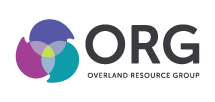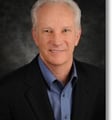Working Together adopted as the ‘new normal’ for the workplace
This is the fourth installment in a blog series “Collaboration and Employee Engagement; Ideas Whose Time Has Come, Again.” Earlier, we explored the beginnings of labor-management cooperation in the 1960s, the formation of the National Quality of Work Center (NQWC) that conceptualized collaboration between labor unions and management for shared benefit, and experiments that showed benefits of new levels of cooperation. Now, we see experiments becoming the new normal in many organizations.
Early efforts at increasing productivity and quality of work life were often focused on the auto and steel manufacturing sectors. Both industries had always been hard hit by swings in the economy, the first oil embargos and resulting energy crisis, but in the late 1970s and early 1980s, a new threat had appeared – automobiles manufactured outside the United States.
Initially the threat was ignored, since foreign makes were considered inferior and too small for American tastes. Foreign-made vehicles had come onshore before, but this time the invasion was different. This time the offering was high quality, low cost, fuel efficient, attractive vehicles.
Since the days of Henry Ford’s Model T, the auto industry has been a significant engine for the domestic economy, employing enormous numbers of highly paid union workers in the factories of the Big Three and furnishing substantial additional work at suppliers, dealerships and in the aftermarket.
A thriving, prosperous middle class emerged in the U.S. Simply put, neither the American manufacturing sector nor organized labor in the U.S. could any longer ignore the need to begin dramatically improving the quality and addressing the inefficiencies inherent in the current approach to manufacturing automobiles.
Clearly the kind of change being demonstrated in the early National Quality of Work Center (NQWC) experiments, centering on involvement and engagement of employees, was necessary for survival. Forward thinking corporate executives and organized labor leaders began to cautiously attempt experiments with the help of the “new breed” of organization development consultants.
Ford leaders and their counterparts in the United Auto Workers (UAW) were early adopters. Patrick Dolan (the founder of Overland Resource Group’s predecessor firm, WP Dolan & Associates) and Indiana University Professor Jim Shonk were asked by Ford and the UAW to work with local union and management leaders in Ford’s Indianapolis Transmission Plant, a site which had historically been fraught with labor strife – slowdowns, wildcat strikes, walkouts, etc.
A Joint Union and Management Steering Committee was formed. Leaders challenged the workforce to join with them in redesigning their processes from the bottom up, beginning on the shop floor by asking the people who built the cars how to do it better.
The union-represented workers, who for years had been labeled as the problem, were now instead organized into teams that, when listened to, began to offer viable solutions to manufacturing problems. Before long the resulting improvements in quality, efficiency, labor relations and workforce attitudes made a convincing case to both parties.
The lessons learned from the experiment at Indianapolis were institutionalized in Ford and the UAW’s next national Collective Bargaining Agreement. Language was inserted requiring every plant to begin jointly experimenting with “Employee Involvement”. As Don Ephlin, the UAW’s International Vice President for Ford, loved to point out, “Fortunately Ford did not have the money for expensive new technology. So we had to count on our people to make the difference, and make a difference they did!”
Next: The current state of employee engagement in America.
Robert Hughes is the founder and President of Overland Resource Group and can be reached at r.hughes@orginc.com.
Nicholas Bizony is long time member of the consulting consortium at Overland and is a founding Principal with The Lakeland Group, where he consults to major organizations in the public and private sectors, enabling them to achieve significant improvements in productivity and quality, cost reduction, and increased customer satisfaction. Nick can be reached at n.bizony@orginc.com.



